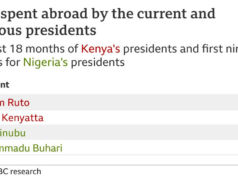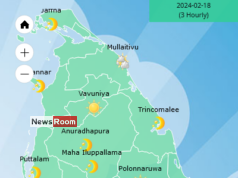Sri Lanka’s worst post-war economic crisis represents a major blow to the country’s progress towards achieving the United Nations’ Sustainable Development Goals (SDGs), efforts that were already hobbled by the COVID pandemic. However, the situation is also providing impetus to the work of academics that are using their knowledge to tackle the immediate fallout from the crisis, in addition to longer-term sustainability goals, says a report published by the University World News, an online publication that reports on higher education news and developments from a global perspective. It quotes Deepthi Wickramasinghe, conservation biologist and professor at the University of Colombo, having said that university students, from rural areas, studying at the University of Colombo, were cutting down on their food intake to make ends meet.
“In September, Sri Lanka’s cost of living index climbed to a new high over 70%, up from 66.2% in 2020.
“Students from rural areas cannot afford the higher food and living prices in Colombo city.
“With poverty increasing in the country, Sri Lanka will certainly not be able to make progress to achieve its targets by 2030,” she said.
“The [economic] crisis has raised the importance of assessing regional SDG progress, rather than relying on national statistics,” she said.
“Against looming poverty and hunger, the priority in Sri Lanka’s SDG activities should be on support for vulnerable populations – children and the elderly, especially in the low-income sectors,” said Prof Anoma Chandrasekara, at the Department of Applied Nutrition of Faculty of Livestock, Fisheries and Nutrition at the Wayamba University.
Worldwide, SDG progress has been dented as a result of the COVID-19 pandemic. But Wickramasinghe said the toll on Sri Lanka, saddled with a huge debt and political uncertainty, is heavy. Imports are restricted to save foreign exchange, and fuel shortages have created major problems, including pushing up public transportation prices, directly affecting poorer populations.
Human rights violations, especially recent arrests of peaceful protesters, in Colombo, have also caused Sri Lanka to deteriorate in terms of SDG 16, ‘Peace, justice and strong institutions’.
A report from an Amnesty International researcher on economic, social and cultural rights, released this month, entitled We Are Near Total Breakdown, also pointed to life-threatening shortages of medicine, such as antibiotics and insulin, and essential equipment.
“To survive we need to eat, and with increasing prices, growing our own food that can provide the necessary proteins and other nutrients is the way forward,” said Visakha Tillekeratne, a nutrition expert involved in a research project started with Wayamba University, in 2019.
“The aim is to encourage people to cultivate a home garden that will provide a good diet. This is a concept [that has] grown out of the pandemic and economic crisis,” said Tillekeratne, who supports rural communities.Supported by the UN’s Food and Agriculture Organization, Chandrasekara and her team spearheaded a study on guidelines for a new home garden model, based on technical and dietary reviews.
Chandrasekara has researched the bioactivities, such as antioxidant and glucose response actions of phenolic compounds to ascertain the nutritional value of under-utilised tropical foods, including cereals, legumes, roots and tubers, herbs and condiments.
Nimal Gunatilleke, emeritus professor and a forest biologist, conducting conservation research at the University of Peradeniya, is also a promoter of home-grown funding models to support rural livelihoods.
His research backs the promotion of ‘green labelling’ for local, organically grown foods which contribute to sustainability and improvement of rural livelihoods through traditional cottage industries. ‘Green labelling’ helps smallholder farmers to compete against large plantations that also damage local biodiversity.
Based on his research, he is a leading advocate of additional green financing options beyond Sri Lanka’s traditional approach of loans, grants and national spending measures, which, he said, can reduce the day-to-day impact of the debt crisis. He pointed to the need to rely on other sources of income, apart from a bail-out by the International Monetary Fund currently being discussed by the government.
Gunatilleke has played a role in the development of Sri Lanka’s Biodiversity Finance Plan established by the Central Bank of Sri Lanka, in 2018, to promote green financing as a sustainable financing solution for agriculture, land use and conservation. He advocates the design and development of innovative ways of green financing, such as green bonds, sustainable bonds, climate bonds, etc., that can bring direct benefits to smallholders who are the lifeblood of the Sri Lankan economy.
Gunatilleke contends that ecological schemes are an innovative financial solution to the twin crises of climate change and debt distress in Sri Lanka. “It is a means to mobilise a large amount of financial resources and represents a new source of financing,” he told University World News. Sri Lanka has in place most of its key development strategies and plans for the next several years in conformity with the major global conventions on biodiversity, he explained. “The current [economic] adversity is an opportunity to gain the interest of donor agencies in entering green financing partnerships,” he said.







